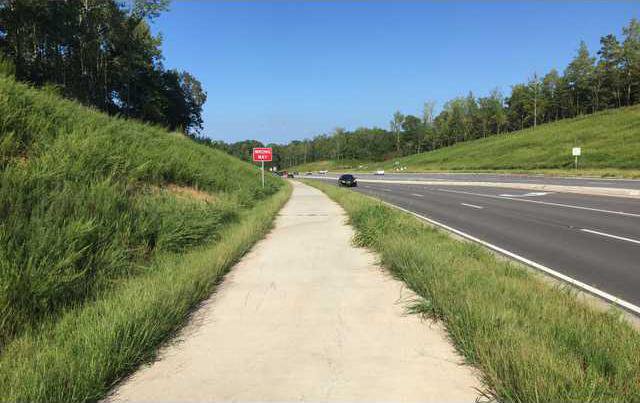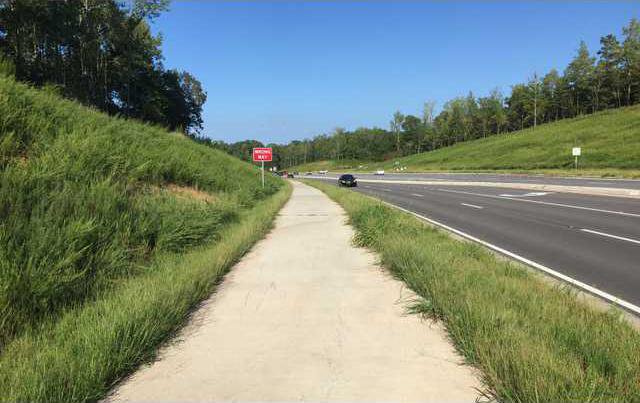A bill passed last year to improve Georgia’s roads is getting into the weeds — quite literally.
While most of the attention may have been on the need to fix roads and bridges, the state’s new transportation funding law — popularly known as House Bill 170, its General Assembly designation — also addresses very basic maintenance, as one South Hall resident found out last week.
Brian Luders, who lives in Reunion Country Club off Ga. 347/Friendship Road, emailed area officials, including the Georgia Department of Transportation, after finding a swath of tall grass along Ga. 347 between Spout Springs Road and Ga. 211/Old Winder Highway.
“Not sure who is supposed to be in charge of upkeep of this wonderful new public amenity, but it is not being taken care of very well,” Luders wrote in an email, which included a picture of the stretch in question. “So please direct me to the right person.”
The stretch was mowed and Luders got a response from Matt Needham, DOT Area 1 engineer representing Dawson, Hall, Forsyth and Gwinnett counties.
“On a positive note, with House Bill 170 having passed, the department is gearing up for the spring to begin contracting mowing out,” Needham wrote.
“In the past, this has been constrained by GDOT’s budget, but this coming spring we will be able to mow twice as much as before. This should keep areas like this looking good for the people who use these sidewalks and paths.”
Teri Pope, DOT district spokeswoman, confirmed as much.
“New funding for transportation through HB 170 will allow GDOT to better maintain our roadway network statewide,” she said. “Additional mowing is a part of the enhanced maintenance plan.”
DOT mowed only twice per season in recent years, Pope said.
“A contract for mowing at least three times a year, herbicide treatment and litter pickup is out for bid right now,” she added.
Other additional maintenance work the DOT will focus on includes vegetation management inside rights of way, guardrail repairs and upgrades and efforts to make “road surface last as long as possible,” Pope said.
The transportation law was pushed last year by lawmakers as a way to help catch up on road needs throughout the state, with some $830 million to $850 million expected to be generated each year.
The law primarily eliminated the state fuel sales tax and enacted a 26-cent excise tax. It also calls for electric car owners to pay an annual $200 fee — $300 for those used for commercial purposes — and removes a $5,000 tax credit serving as a purchase incentive.
“What the new revenues are going to do is give us the ability to be more flexible,” DOT Commissioner Russell McMurry has said. “Where we always depend on federal funds to do big projects, we might able to do some of those projects with state money.”
That frees up federal money for maintenance projects, “where there is a much simpler environmental (process) and bureaucracy that you have to work through.”
“And maintenance is a project,” said state Sen. Steve Gooch, R-Dahlonega, who helped lead a House-Senate committee that formed last year to address state transportation funding.
“We’ve got literally just billions of dollars’ worth of needs in our state ... and we’ve got to address them soon.”
Ga. 347, which crosses South Hall from Buford to Braselton, will become a big maintenance obligation for the state.
The 8-mile, $38.4 million project, which is set for completion Jan. 12, calls for the four- and six-lane road to be widened between Interstate 985 and Ga. 211.
Beyond that, the DOT has plans to widen Ga. 347 to Lanier Islands resort.
When done, it will feature the longest section of sidewalk in Hall County, Pope said.

